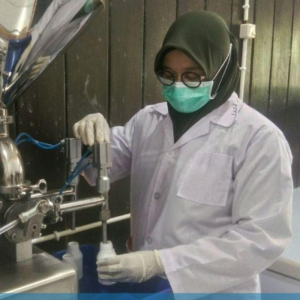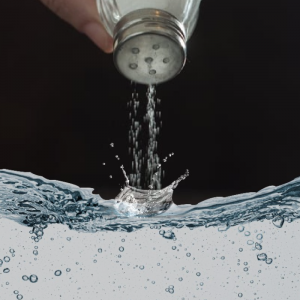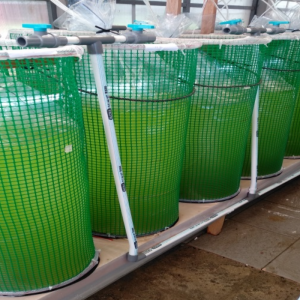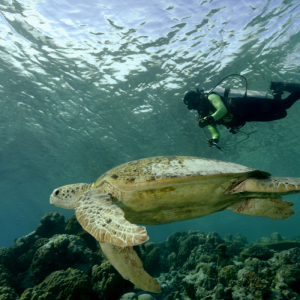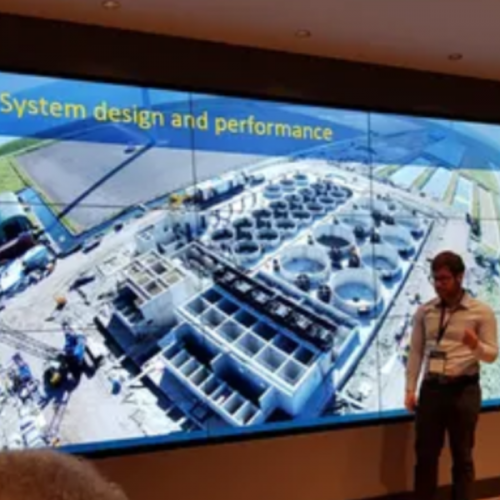
Feed and Faeces: The Challenges of RAS Production
| Tue, 08 Oct 2019 - 13:41
While speaking at Alltech’s Aqua InDepth conference this week, Bram Rohaan, production manager at Kingfish Zeeland, took delegates on a virtual tour of the company’s RAS production facility.
The facility currently produces 520 tonnes of kingfish per year and recycles 99.6 percent of its water intake. Although Kingfish Zeeland’s innovative facility is on the cutting edge of aquaculture technology, there are – according to Rohaan – obstacles preventing it from reaching its full production potential.

Bram Rohaan gave Aqua InDepth delegates a virtual tour of the Kingfish Zeeland RAS facility
Showing conference delegates a photo of broken and crumbling aquafeed, he explained, “this is what we have been experiencing for the past two years – we weren’t able to receive feed without breakage.”
Since RAS requires extra filtration in order to keep the water clean and oxygenated, producers need to use feed pellets that are more resistant to breakage than typical aquafeed. This will improve water quality and prevent filters from become too saturated with feed particles, said Rohaan.
Though feed quality has recently improved, he explained, addressing the knock-on issues caused by broken pellets was a daily challenge for the RAS facility.
Newer problems are emerging for Kingfish Zeeland too. “Now, the new challenge is dealing with the faeces,” says Rohaan. “Kingfish faeces aren’t like salmon or trout faeces – they aren’t solid.” This problem presents similar filtration issues to aquafeed but will require more research into kingfish biology to resolve.
Rohaan also spoke about how Kingfish Zeeland is aiming to double its production capacity to 1,000 tonnes, with longer-term ambitions to increase this to 3,000 tonnes, and is also in the process of developing a new RAS in the United States.
When answering questions from delegates, Rohaan was unwilling to divulge details about the company’s production costs. However, he did say that labour costs are still an obstacle for the company and that scaling up production is also a challenge for their future growth.
Rohaan’s talk was part of Alltech’s Aqua InDepth conference, which brought over 200 delegates from 42 countries to Eindhoven to learn about the latest breakthroughs in aquaculture and feed science.
Source : The Fish Site













